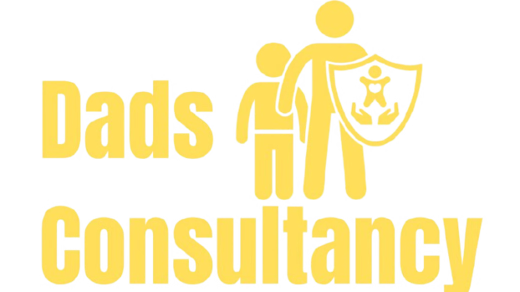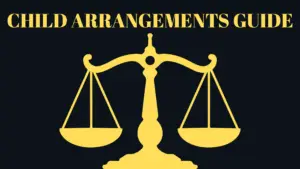Last Updated: Saturday, 6 September 2025
The moment the court orders a Section 7 report, the focus of your case shifts entirely to one critical question: what are CAFCASS actually looking for? For a father, this can be the most stressful part of the entire family court process. It can feel like an intense period of judgment, where every word you say and every action you take is being scrutinised. You’re likely feeling lost, anxious, and deeply worried about how the CAFCASS officer will perceive you and your relationship with your child.
I have been subjected to significant emotional discomfort seeing fathers try to navigate this complex process alone. The key is to move from a position of crisis to one of control by understanding the CAFCASS framework. They are not looking for a “perfect” parent. They are looking for a safe, loving, and child-focused parent. As a consultant who used to write these reports for CAFCASS, I know exactly what officers are trained to look for. This guide will give you that insider’s perspective, explaining the specific criteria they use, the evidence they value, and the red flags that can harm your case.
Key Takeaways
- CAFCASS is Focused Entirely on the Child’s Welfare: The officer’s only goal is to assess what is in your child’s best interests. They are not there to take sides in the adult dispute.
- They Use the Welfare Checklist as Their Guide: The entire investigation is structured around the seven points of the Welfare Checklist. Aligning your evidence to this framework is a strategic approach.
- They Look for Insight and Child-Focused Parenting: CAFCASS wants to see a parent who understands their child’s world, can see things from their perspective, and is willing to put the child’s needs before their own feelings.
- Cooperation and a Calm Attitude are Crucial: Your demeanour is a key part of the assessment. Fathers who are cooperative, reasonable, and calm are viewed far more positively than those who are hostile or defensive.
Worried about what CAFCASS are looking for? WhatsApp us now for expert support before your interview.
Quick Navigation:
The Foundation of Every Report: The Welfare Checklist
Before we look at the specific tools CAFCASS use, you must understand their guiding star: the Welfare Checklist. This isn’t just a CAFCASS policy; it’s the law, set out in Section 1 of the Children Act 1989. Every observation, interview, and conclusion in the Section 7 report must relate back to these seven points.
What This Means For You: A strategic approach is to structure your own thinking and evidence around these points. For every proposal you make, be ready to explain how it meets these criteria for your child.
- The ascertainable wishes and feelings of the child concerned.
- The child’s physical, emotional and educational needs.
- The likely effect on the child of any change in his or her circumstances.
- The child’s age, sex, background and any characteristics which the court considers relevant.
- Any harm which the child has suffered or is at risk of suffering.
- How capable each of the child’s parents is of meeting his or her needs.
- The range of powers available to the court.
Your ability to talk knowledgably about your child’s emotional and educational needs, or to show insight into the effect of change on them, is precisely what the officer is looking for.
Not sure how to show you meet the Welfare Checklist? Message us on WhatsApp and we’ll guide you step by step.
A Deep Dive: The Child Impact Assessment Framework (CIAF)
To ensure consistency, CAFCASS uses its own national assessment framework, known as the Child Impact Assessment Framework (CIAF). Understanding this framework helps you understand how the officer is thinking and structuring their report.
Official Definition: The CIAF is the specific toolset CAFCASS officers use to assess how children are experiencing parental separation and to identify any risks of harm. It provides a structured way for them to analyse the situation and make recommendations to the court that are focused on the impact on the child.
Breakdown of Components:
To make sense of the Child Impact Assessment Framework, it helps to see how CAFCASS officers break it down into practical areas. Each part of the framework gives them a different lens on your child’s world – and a chance for you to show you’ve thought about their needs in real terms.
How the child experiences the situation
This is the central focus. The officer will try to understand the world from your child’s perspective.
What This Means For You: You need to demonstrate that you also see the world through your child’s eyes. When you talk about your proposals, a strategic approach is to explain how they will benefit your child emotionally and practically, not just what you want.
The nature of any abuse or harm
The framework has specific tools to assess different types of harm, including domestic abuse, harmful conflict, and alienating behaviours.
What This Means For You: If allegations have been made, it is vital that you address them calmly and factually. Do not be dismissive. Show insight into why the allegation might have been made and provide your own clear, evidence-based account.
The impact on the child
The officer will assess how the situation and any identified risks are affecting your child’s development and well-being.
What This Means For You: This is where your evidence is key. School reports showing a decline in grades, or your own observations of your child becoming withdrawn, are powerful pieces of information that show the impact of the current situation.
The parent’s capacity to change
CAFCASS is interested in the future. They will assess whether parents are able to make changes to improve the situation for the child.
What This Means For You: This is your opportunity to be proactive. If you have undertaken a parenting course, engaged in mediation, or read books on co-parenting, this is powerful evidence that you are willing to learn and change for the benefit of your child.
A Real Life Scenario: An officer is assessing a case with high conflict. They use the CIAF to analyse the situation. They note that while both parents love the child, the constant arguing is causing the child significant emotional harm (The impact on the child). The father, in his interview, acknowledges this and says, “I recognise the conflict is hurting our son. I have enrolled on a Separated Parents Information Programme to learn better communication strategies.” This directly addresses the capacity to change element of the framework and will be viewed very positively.
The CAFCASS framework can feel overwhelming — WhatsApp us today to get a clear, practical prep plan.
Common Pitfalls:
- Ignoring the impact on the child: Focusing only on the adult dispute and “he said/she said” arguments.
- Being defensive about allegations: A refusal to engage with or discuss any allegations will be seen as a lack of insight.
- Showing no willingness to change: A rigid, inflexible position suggests that the conflict is likely to continue, which is harmful to the child.
At a Glance: What CAFCASS Wants to See vs. Red Flags
Fathers often worry about the wrong details. This side-by-side view strips it back to the essentials – what CAFCASS actually values, and the red-flag behaviours that can quickly undermine your case.
| Focus Area | What CAFCASS Wants to See ✅ | Red Flags to Avoid ❌ |
|---|---|---|
| Attitude | Cooperative, open, and willing to take responsibility for your part in any conflict. | ❌ Defensive, hostile, secretive, or blaming the other parent for everything. |
| Parenting Focus | Child-Focused: Explaining how your proposals benefit the child’s welfare and emotional needs. | ❌ Parent-Focused: Arguing about your “rights,” what is “fair” to you, or past grievances. |
| Co-Parenting | A willingness to communicate respectfully and support the child’s relationship with the other parent. | ❌ Denigrating the other parent or being unwilling to communicate for the child’s sake. |
| Insight | Showing you understand your child’s feelings and can reflect on your own strengths and weaknesses. | ❌ A lack of insight into your child’s emotional world or an inability to reflect on your own behaviour. |
| Home Environment | A safe, clean, child-friendly home with adequate space and age-appropriate items. | ❌ An unsafe, chaotic, or unhygienic environment that is not prepared for a child. |
Avoid red flags and highlight your strengths. WhatsApp us now for tailored Section 7 preparation.
Common Mistakes That Weaken Your Case
Beyond the major red flags, there are common strategic errors fathers make during a Section 7 investigation that can significantly weaken their case.
- Criticising the other parent excessively: While you must raise genuine safeguarding concerns, a constant stream of negativity about your ex-partner’s character will make you appear to be part of the problem.
- Coaching your child: Any attempt to influence what your child tells the CAFCASS officer is a serious red flag. Officers are highly trained to spot this, and it will severely damage your credibility.
- Appearing inflexible: A “my way or the highway” attitude suggests you are not willing to co-parent effectively, which CAFCASS sees as essential for a child’s well-being.
One of the most critical areas is how you handle difficult questions during your CAFCASS interview.
Don’t risk mistakes that weaken your case — WhatsApp us today and prepare with confidence.
A Real-World Example: Answering a Difficult Question
The Question: “The mother says you have a bad temper. What would you say to that?”
A Weak Answer (A Red Flag): “That’s a complete lie. She’s the one with the temper. She’s just trying to turn you against me because she’s bitter about the separation. It’s ridiculous.”
This response is defensive, blaming, and shows no insight.
A Strong, Strategic Answer: “I can understand why she might feel that way. We had some heated arguments towards the end of our relationship, which I deeply regret, and I know I can show my frustration. However, I have never lost my temper with my child. Since the separation, I have been working on managing my frustration and have completed an online anger management course to learn better coping strategies. My absolute focus is on ensuring our son is never exposed to adult conflict again.”
This answer is effective because it shows insight, takes responsibility, doesn’t blame, and demonstrates a proactive step towards positive change.
FAQs: The Section 7 Report
Fathers often have the same urgent questions when facing a Section 7 report – here are the answers you need most.
What is the main purpose of a Section 7 report?
Its main purpose is to provide the court with an independent, professional assessment of a child’s welfare. A CAFCASS officer investigates the family’s circumstances and makes recommendations to the judge about what child arrangements would be in the child’s best interests.
What questions will a CAFCASS officer ask me?
Questions will revolve around the Welfare Checklist. A CAFCASS officer will ask about your understanding of your child’s specific needs (physical, emotional, educational), your parenting capabilities, your response to any safeguarding concerns, and your ability to support your child’s relationship with their other parent.
How do you have a good CAFCASS interview?
Fathers often benefit from being calm, cooperative, and consistently child-focused. Prepare by thinking of real-world examples that demonstrate how you meet your child’s needs. Listen to the questions carefully and answer honestly, showing insight into your own strengths and areas for improvement.
What do CAFCASS look for in a home visit?
They are looking for a “good enough” standard. This means the home should be safe, clean, and child-friendly. They will want to see that the child has their own comfortable space to sleep, age-appropriate toys or activities, and that the environment is stable and welcoming. For more detail, read our Guide to a CAFCASS Home Visit.
Will CAFCASS speak to my child?
Yes, in most cases. Hearing the child’s wishes and feelings (in an age-appropriate way) is a central part of the Section 7 investigation and a key point of the Welfare Checklist. The officer will usually speak to the child alone to ensure they can talk freely without pressure.
How do I show CAFCASS I am a good dad?
You show this through your actions and your words. Talk about your child with warmth and specific detail. Provide examples of how you spend your time together. Demonstrate that you understand their unique personality. Most importantly, show that you can put your child’s needs before your own feelings about your ex-partner.
Do CAFCASS check police records?
Yes. As part of their standard safeguarding checks for every Section 7 report, CAFCASS will request information from the police (PNC checks) and the local authority (social services) for any records relating to the adults in the case.
What if CAFCASS makes a recommendation I don’t agree with?
You have the right to challenge the recommendations. A strategic approach is to submit a formal response to the court, usually in a Position Statement, that outlines precisely why you disagree. Use the Welfare Checklist as a framework to support your arguments with facts and evidence, rather than emotion.
What is the Child Impact Assessment Framework?
This is CAFCASS’s own national framework used by officers to assess the impact of parental separation and conflict on a child. It is the specific tool the officer will use to structure their analysis of your family’s situation for the report.
Can a CAFCASS officer’s report be biased?
CAFCASS officers are professionals trained to be impartial. However, if you feel a report is one-sided or contains factual inaccuracies, the most effective way to address this is not by simply alleging bias. The strategy is to highlight the specific factual errors or flaws in the analysis in your formal written response to the court.
Your Section 7 report could decide your child’s future. WhatsApp us now for one-to-one preparation.
Insider Insight from Lach
The CAFCASS officer’s interview is not a test you can pass with the ‘right’ answers. It’s an assessment of you as a person and a parent. They are looking for authenticity. They want to see a father who genuinely understands his child’s needs and can speak about them with love and insight. The fathers who get the best outcomes are not the ones who perform perfectly, but the ones who are honest, reflective, and can consistently bring the conversation back to what is best for their child.
Meet Lach, Your Guide at Dads Consultancy
Navigating the complexities of a Section 7 report demands clarity and unwavering support. Many fathers find that our fixed-fee support services offer the transparent guidance needed to approach this challenging phase with confidence, ensuring you always know where you stand and what to expect.
Next Steps
At Dads Consultancy, we provide the specialised, expert support to move you from crisis to control during a Section 7 investigation. We don’t just offer advice; we provide practical, hands-on assistance to ensure the report is a fair and accurate reflection of your parenting. We can help you with:
- Navigating Section 7 Reports: We provide intensive preparation for your interview and expert guidance on how to present your evidence effectively to the CAFCASS officer.
- Handling the CAFCASS Call: We prepare you for the initial safeguarding call, setting the right tone from the very start of CAFCASS involvement.
- Drafting Powerful Position Statements: We guide you in writing compelling statements to share with the officer and to respond formally to the final report.
- Responding to Allegations: If the report is based on false allegations, we help you structure factual, evidence-based responses.
The Section 7 report is the most critical piece of evidence the court will consider. The key is to act strategically and with the benefit of expert guidance. WhatsApp us today for a strategic consultation, and let’s build a clear plan to ensure your voice is heard loud and clear.
🧠 Insider Insight: Lach, our founder, is a qualified social worker who used to write Section 7 reports for CAFCASS — the very reports that influence court outcomes. Now he helps dads respond to them. Learn more about Lach’s background.




